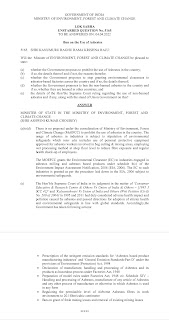Disregarding the incontrovertible scientific and medical evidence, Government of India has informed the Parliament in 2022 that there was no proposal to prohibit the use of asbestos in the country. It ignores it's own notification under Section 25(1) of the Mines Act, 1952, which recognises the diseases that can be caused by asbestos. These include asbestosis and cancer of the lung or the peritoneum or pleura (i.e., mesothelioma).
Almost all of the asbestos produced worldwide is of chrysotile variety, the white asbestos. Unmindful of the recommendations of World Health Organization (WHO), the global demand for asbestos is likely continue for the foreseeable future, particularly for use in cement pipe, roofing sheets, and other construction materials in Asia. This trend is reported in the Mineral Commodity Summaries of U.S. Geological Survey.
The WHO recommends it's elimination because all forms of asbestos cause lung cancer, mesothelioma, cancer of the larynx and ovary and asbestosis (fibrosis of the lungs).
The US survey states that the Supreme Federal Court of Brazil enacted a national ban on asbestos in November 2017. With the exception of an approximately 2-week pause because of a legal challenge in 2021, the only asbestos producer in the country has operated its mine continuously since November 2020 under the authority of a State law that permits the extraction and processing of asbestos in the State of Goias for export purposes only.
U.S. Geological Survey records several substitutes for asbestos, including calcium silicate, carbon fiber, cellulose fiber, ceramic fiber, glass fiber, steel fiber, wollastonite, and several organic fibers, such as aramid, polyethylene, polypropylene, and polytetrafluoroethylene. Several non-fibrous minerals or rocks, such as perlite, serpentine, silica, and talc, are also considered to be possible asbestos substitutes for products in which the reinforcement properties of fibers are not required. Membrane cells and mercury cells are alternatives to asbestos diaphragms used in the chloralkali industry.
There is a compelling logic for India to adopt these substitutes to safeguard the life of all the present and future citizens including presidents, prime ministers, chief ministers, ministers, judges, soldiers, traders, consumers and doctors.








No comments:
Post a Comment